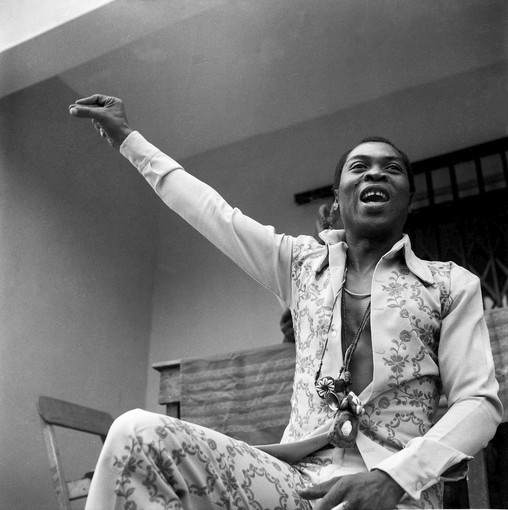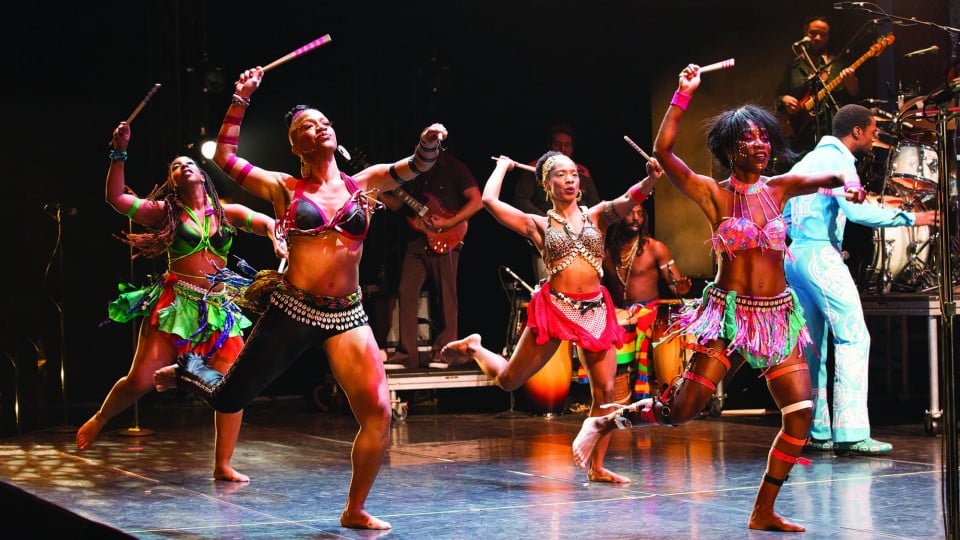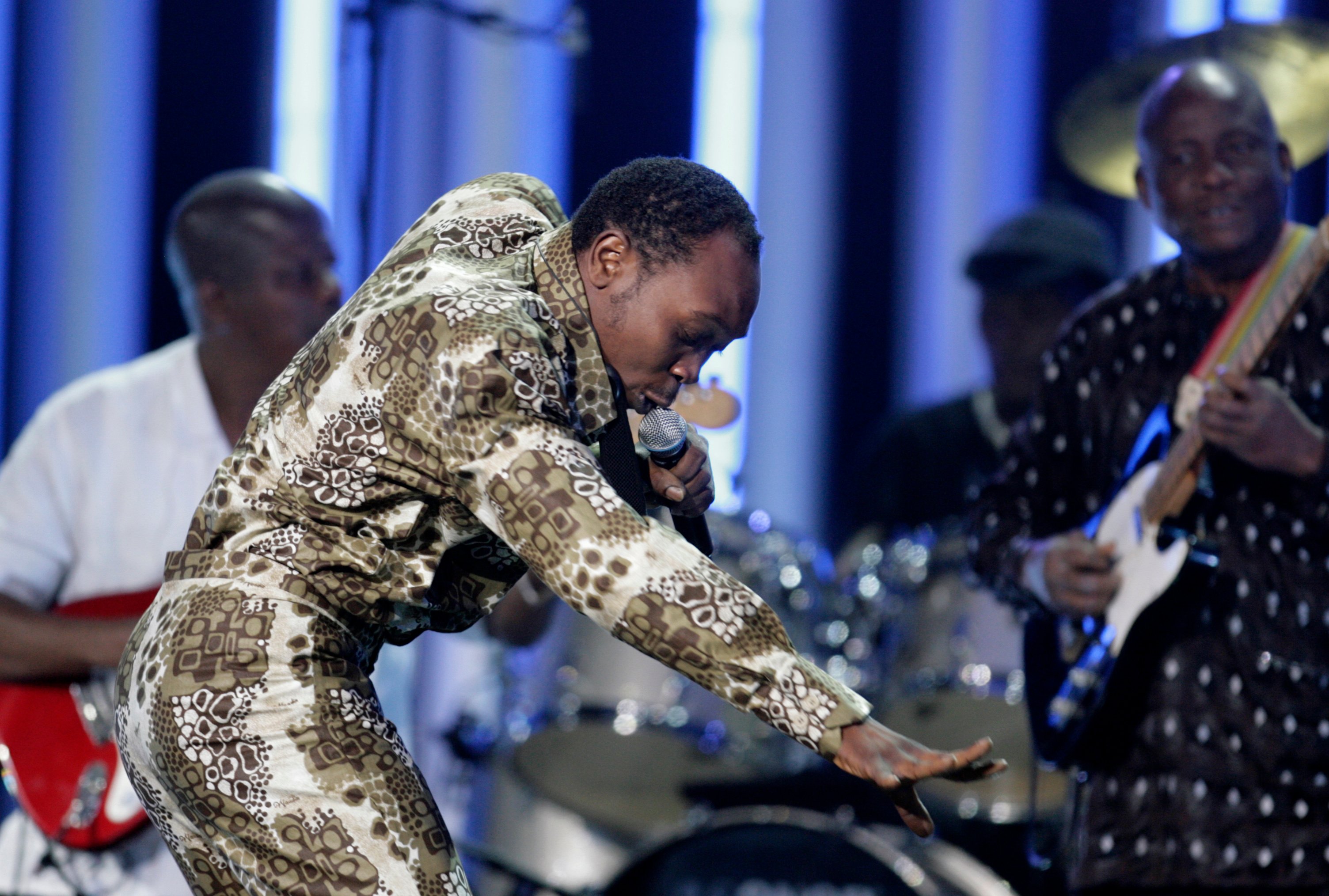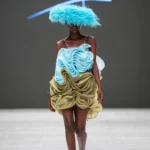Felabration 2025: Shakara for Days – A Silver Jubilee of Fire, Identity & Legacy

Lagos dons a new energy this October, the streets are alive, the drums are loud, and everywhere you turn there’s talk of Shakara. It’s Felabration 2025, the 25th edition of Nigeria’s most sacred Afrobeat pilgrimage, and this year, its music, its memory, resistance, swagger, and a full-on love letter to Fela.
Who Was Fela? The Man, The Myth, The Movement
To understand what’s happening now, you have to know where the thunder began.
Olufela Olusegun Oludotun Ransome-Kuti, that’s his birth name, he was born October 15, 1938, in Abeokuta, Nigeria. He came from a lineage of fighters, his mother, Funmilayo, was a bold women’s rights activist, his father was a teacher and unionist. From early days, Fela was built for disruption.
He journeyed abroad (London, then the U.S.), soaked in jazz, rebellion, Black consciousness, and when he came home, he created Afrobeat, that hypnotic fusion of Yoruba rhythms, jazz, funk, highlife, and horns that hit you in the chest and mind at once.
But Fela was never just a musician, he used his voice as protest, his stage as a court, his audience as jury. He took on Nigeria’s military regimes, corruption, religious hypocrisy, he was arrested countless times, had his commune (Kalakuta Republic) raided, his mother harmed, his music banned, still he sang.
His greatness wasn’t in playing safe, it was in playing loud, playing free. He declared himself “Black President”, demanding accountability from rulers. And when he died in 1997, his spirit didn’t vanish, it multiplied. His sons, Femi and Seun, carry the torch, and Afrobeat’s echo is global.

How Fela Shaped Nigerian Music Culture
Before Fela, musical genres in Nigeria were more compartmentalized, highlife, juju, palmwine. But Fela broke walls, he injected resistance, anger, soul, and political urgency into music. He made songs that weren’t just entertainment, they were manifestos.
Afrobeat became the soundtrack of dissent, young artists found in him a blueprint, music as voice, music as power. He gave space for improvisation, horn breaks, extended grooves, call-and-response, that live freedom is now core to so much of Afrobeats (with an “s”) that dominates charts.
He also made Lagos itself part of the lore, the sweat, the noise, the city as muse and battlefield. His shrine, his commune, his band all symbolic of art, struggle, community. Many music plots in Nigeria today trace back to his lineage.
ALSO READ:
What Felabration Means
Felabration is the living, breathing extension of Fela’s voice. Conceived in 1998 by his daughter Yeni Anikulapo-Kuti, it is held every October during the week of Fela’s birthday.
It’s more than concerts, it’s a cultural week: debates, street parades, art exhibitions, fashion battles, dance, symposiums, photo exhibitions, all anchored in the legacy of resistance, identity, freedom.
The festival always finds a way to provoke thinking, spark youth consciousness, and demand that Africa’s stories be told loud and unfiltered.
Felabration Through the Years: From Shrine to Global Stage
Year after year, Felabration has morphed, in early editions, it was intimate Shrine nights, local debates, Lagos youth gathering. Over time, it expanded, guest acts from abroad, multi-venue satellite events, bigger production, multimedia installations.
Past editions have seen legends like Hugh Masekela, Lucky Dube, Lagbaja, Asa, Femi Kuti, Seun Kuti and more grace the Shrine stage.
In recent years, Felabration has also become a tourist magnet, Lagos gives it official support, it draws diasporans and global Afrobeat lovers.
When COVID struck, Felabration shifted to virtual editions, hybrid formats, digital exhibitions. But even in screens and pixels, the spirit persisted.
Felabration 2025 – Shakara for Days
This year, 2025, is special, it’s the 25th edition, the silver jubilee. The theme: “Shakara”, swagger, pride, boldness. Fela wouldn’t have had it any other way.
The festival kicked off with a heavy intellectual beat, the debate at NECA Hall, Ikeja, moderated by ex-senator Ben Murray-Bruce. Theme: “Water No Get Enemy” — one of Fela’s classic lines turned into a lens for art, governance, sustainability.
Already before concerts, the city was alive with fashion competitions, school debates, art shows, street parades infusing Lagos with color and memory.
Main events move to the New Afrika Shrine and Freedom Park, with Lagos stages pulsing nightly. Some confirmed names: Femi Kuti, Made Kuti, Terry Apala, Kashcoming, Berri Tiga, Centinno, Boysarm Parody.
There’s also a landmark immersive exhibition called Afrobeat Rebellion, showing Fela’s life, Kalakuta scenes, archives, multimedia, it’s becoming a sacred walk-through history.
Events will also occur outside Lagos, notably Ibadan’s Liberty Stadium on October 15, spreading the spirit beyond the city.
Yeni Kuti, Fela’s daughter and Felabration founder, spoke about the joy of seeing the event reach 25 years, how every year the festival “just gets better.”

In Closing: Why Felabration Still Matters
Because to attend Felabration isn’t just to hear music, it’s to feel memory, be part of legacy, wake up. It’s where Lagos breathes back, it’s where youth speak, it’s where Fela still dances in fire and horn.
In this era of streaming hits, TikTok trends, and viral beats, Felabration reminds us that music can still carry weight, that culture is our anchor, and that identity, loud, messy, beautiful, cannot be sold cheap.
So, if you’re in Lagos or thinking of making the pilgrimage, don’t just go for the shows, go to feel, go to see history in motion, go to walk with Fela’s shadow and return in light.
MORE ARTICLES:
-
Remember These Hits? Afrobeats Songs Turning 20 in 2025
-
Afrobeats Bangers Hitting 10 Years and Still Grooving
-
BNXN’s ‘Captain’ Launch: 5 Lessons in Showmanship and Cultural Branding

Desauce Magazine is more than a blog, it is a cultural journal capturing the rhythm of Nigeria. From music and film to lifestyle and social issues, we tell stories that reflect the energy, struggles, and brilliance of our people.




droversointeru
3 months agowonderful put up, very informative. I wonder why the opposite experts of this sector do not realize this. You must continue your writing. I’m confident, you have a great readers’ base already!
steve Simonetti
3 months agoHi, could I please speak to someone from your wholesale department. I could not find any contact details on desaucemagazine.com.ng.
Many thanks
Steve